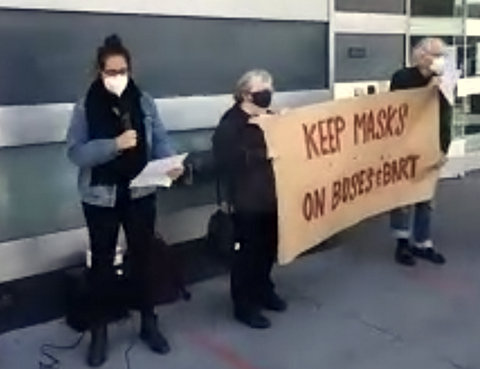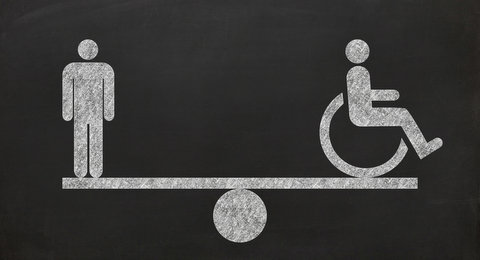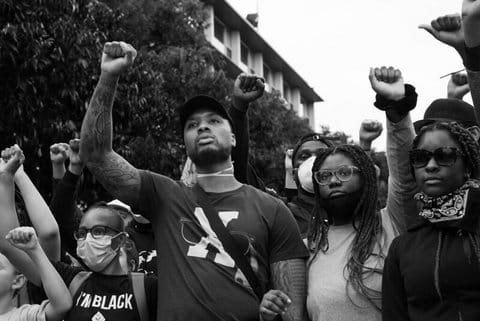
13 Apr As Public Transit Mask Mandate Is Extended, Local Agencies Asked to Go Further

People gathered outside San Francisco Muni headquarters Wednesday to urge local transit agencies to keep mask mandates in place even if the federal requirement expires to protect those still at high risk for COVID-19. (Screenshot by Julia Métraux / The CC Pulse)
By Julia Métraux
The Centers for Disease Control and Prevention announced Wednesday that the mask mandate on planes and public transportation would be extended for another 15 days until May 3. It was originally set to expire April 18.
Gathering outside San Francisco Municipal Transportation Agency headquarters in San Francisco, members of and allies of Senior and Disability Action called on SFMTA, Bay Area Rapid Transit and AC Transit to create their own mask mandates before the May 3 deadline. People also participated in the rally via Zoom.
“There is overwhelming evidence that even as a high-risk person wears it, they will not be adequately protected if they’re surrounded by others not wearing masks,” Raia Small, a community organizer and educator with Senior and Disability Action, said at the rally.
Even after receiving COVID-19 vaccines and boosters, immunocompromised and aging people are both at a higher risk for having breakthrough COVID-19 cases and a higher risk of more severe illness. For example, a November 2021 letter published in the Transplantation journal found that recipients of transplants are 82 times more likely to have a breakthrough infection and 485 times more likely to have a severe case than people who have not received transplants.
The removal or impending removal of certain COVID-19 safety measures also comes at a time when cases of this infectious disease are rising across the United States. COVID-19 cases are 24% higher than they were two weeks ago, according to CNN, due in part to the BA.2 variant being highly contagious.
>>>Read: Half of Bay Area Voters Remain Concerned About Contacting COVID, Poll Finds
People at the rally spoke both in person and online about the importance of keeping public transportation in the Bay Area accessible. For people who are at high risk of contracting COVID-19 and their families, this means other people need to continue to wear masks.
“It’s crowded … people’s mouths and noses are just two feet apart at times,” Adeline Wu, an immunocompromised person who lives in the Bay Area, said. “I’d be forced to take Uber, which would be extremely expensive.”
Ride-sharing apps can also be inaccessible for people with disabilities, both in the available cars and their policies, which disability activists have spoken up against. The U.S. Department of Justice sued Uber in November 2021 for charging wait-time fees for disabled people who may need more time to get in cars.
Public transportation may also be the only way that high-risk people can get to work. Jennifer Rakowski shared at the rally that, as someone who is immunocompromised, she wants to minimize her risk of contracting COVID-19 again.
“The main reason I’m on public transit is for work, and I don’t want to go through what I went through in January,” Rakowski said.
>>>Read: Caregivers Need Support — and for People to Get Vaccinated
In between speakers, members of the rally in-person and virtually both asked the SFMTA, BART and AC Transit to implement their own mask mandates, and most, if not all, participants were not able to get through to someone working at these agencies.
Ahead of the rally, different community groups, including the Senior Services Coalition of Alameda County, the Arc San Francisco and Disability Justice League – Bay Area, joined Senior Disability Action in signing a joint letter addressed to local mayors and transit and public health officials.
“This risk is highest for immunocompromised and disabled people, seniors, people of color, low-income people, and essential workers— all groups of people that rely heavily on public transit,” part of the letter read.
Beth Kenny, the city of Alameda’s commissioner on Persons with Disabilities, is confident that the extension of the CDC’s mask mandate puts advocates in a good position. The rally was originally scheduled before the extension was announced.
“This puts us in a good position to be able to say to our transit directors today that we now have two weeks to come up with a comprehensive plan that includes getting input from our communities,” Kenny said.
BART currently recommends that its riders wear masks and social distance, as does the AC Transit, and both claim to have improved their ventilation. However, it is unclear whether these agencies have considered creating their own mask mandate.
BART train cars recycle air inside with fresh air every ~70 seconds. That’s far more frequent than a grocery store or a office building.
With frequent ventilation and stronger filtration, we’re working to keep air in a train car clean — and reduce risk of COVID transmission. https://t.co/ZqkBYJRpy0 pic.twitter.com/IqSOGOdz9F
— BART (@SFBART) December 13, 2021






Cheryl Jacobs
Posted at 07:30h, 16 AprilHoping this group is successful. The virus is still too active for us to let down our guard in crowded spaces.
Lisa Dresner
Posted at 16:36h, 18 AprilI 100% support BART’s keeping a mask mandate regardless of what the federal government does. As a person with co-morbidities who caught covid even while wearing an N95 because other tenants in my building refused to take the basic public health precaution of wearing their masks in our public spaces, I know that it’s not enough for just the vulnerable person to mask. To protect us all, EVERYONE needs to mask in public spaces. It’s just the decent thing to do for your fellow human beings, and I hope that BART leadership has the guts to do the right and moral thing, rather than caving into pressure from people who don’t care whether others live or die.